8 Drug-Free Ways to Put Insomnia to Bed
Try these smart DIY strategies to finally get some sleep.
Updated on December 7, 2022
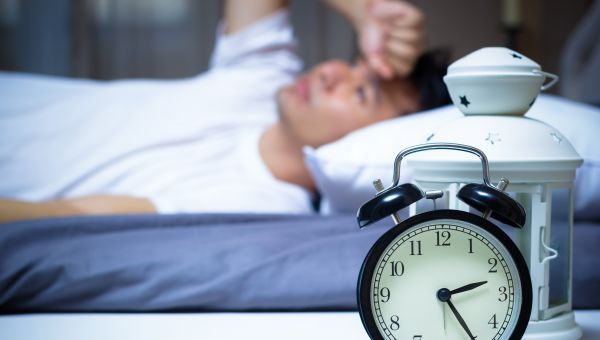
There are few things worse than lying in bed at night and staring at the clock for hours on end. But you’re not alone in your sleep struggles. Around 70 million Americans have sleep issues like insomnia, according to the Centers for Disease Control and Prevention (CDC).
Not only does insomnia leave you feeling lousy, it can have serious implications for your health, raising your risk for depression, heart disease, and obesity, and lowering your immunity.
There are many over-the-counter sleep aids, supplements, and prescription medications to help you sleep, but not everyone tolerates them well and some can become habit-forming.
Consider trying these eight drug-free ways to get some rest.
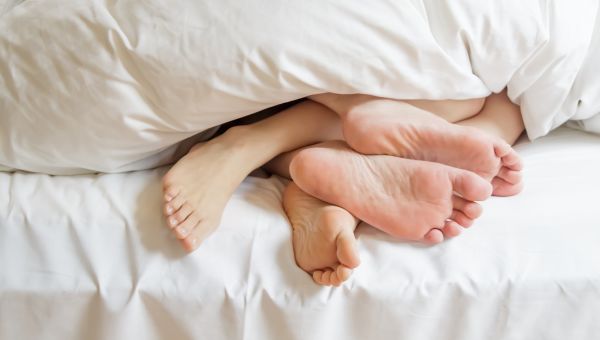
Have sex
While experts can't say conclusively that sex alone helps fight insomnia, we do know that the chemicals released during sex may help put us in the mood for sleep.
During sex, our bodies increase production of oxytocin, the “love hormone,” and slow the production of the stress chemical cortisol. Blood pressure also drops slightly, which may help us feel more relaxed.
Sex causes the release of prolactin, a hormone that can make you feel sleepy, as well.
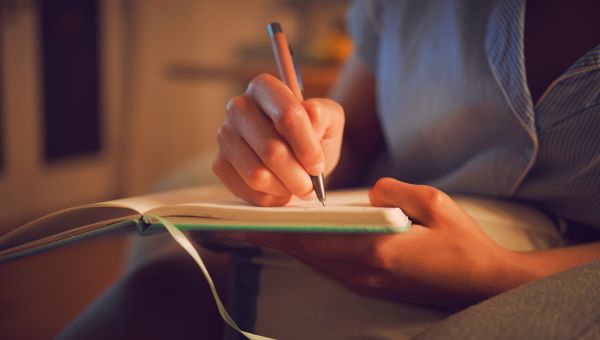
Keep a bedside journal
Nagging worries are one of the top reasons people can’t sleep at night. Instead of tossing and turning from anxiety, try keeping a worry journal on the nightstand. Before bed, take a minute to write down your thoughts or make a list of to-dos for the next day. A small 2018 study published in the Journal of Experimental Psychology: General found that participants fell asleep faster after writing a specific to-do list for just five minutes before bed when compared to individuals who wrote about completed activities from the same day. Writing a to-do list may help declutter your mind and set the stage for sleep.
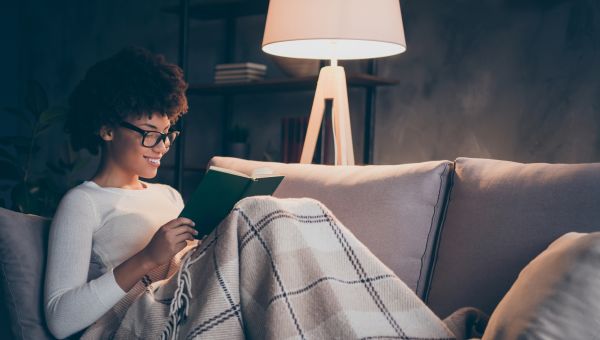
Get out of bed
Are you guilty of staring up at the ceiling for hours, trying to get to sleep? It may sound counterintuitive but leaving the bedroom might help.
Staying in bed for hours while you’re unable to sleep can increase feelings of anxiety and might actually be making it harder to get rest. If you can’t fall asleep within 20 minutes, go to a different room and keep yourself busy until you feel tired. Only go back to bed when you feel sleepy. Continue in this way until you're finally able to fall asleep.
The key is to try to take your mind off not being able to sleep without overly stimulating your brain. Reading a book or tidying up your space are good options. Just avoid logging onto your computer or scrolling your phone, which can lead you to become more agitated.
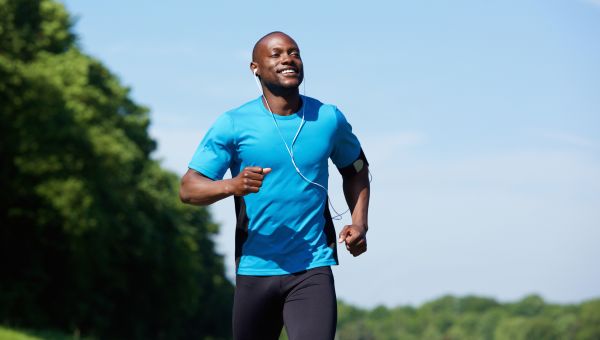
Get some exercise
Research has consistently shown that people who exercise roughly 150 minutes per week, the recommended amount by the United States Department of Health and Human Services, sleep better than people who don’t.
Some experts believe this may be because your body temperature increases as you exercise, and once you're done, it begins to cool down. If you're exercising in the afternoon, or later in the day, this slight drop in body temperature can help induce sleep. Exercise also decreases stress and anxiety—known triggers for wakefulness—and helps regulate your circadian rhythm, so you're sleepy when you need to be.
Aim for a 20-minute walk after dinner (as long as it’s a few hours before bedtime) or some lunchtime cardio.
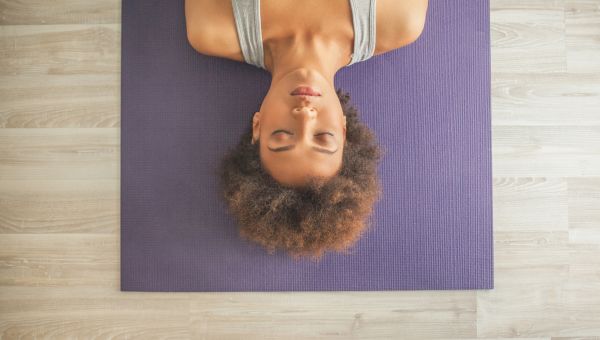
Practice deep breathing
Deep breathing helps lower heart rate and blood pressure, which can help you relax into sleep. Not sure how to start? Try this simple practice: Lie flat on your back, with one hand on your belly and one hand on your chest. Breathe in slowly for five seconds, as you imagine your lungs filling with air. When your lungs feel full, exhale slowly for seven seconds and repeat.
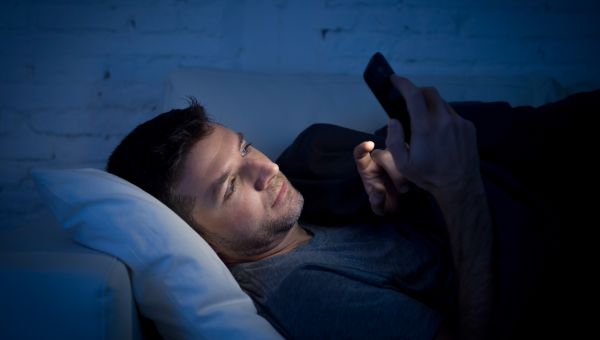
Nix blue light
As tempting as it is to watch TV, read from your tablet, or catch up on emails, the light emitted from screens is not conducive to falling asleep.
Blue light from electronic screens suppresses melatonin production, which affects the body’s natural sleep patterns and makes it harder to feel sleepy. A 2018 review in Chronobiology International found that two hours of exposure to blue light in the evening suppressed melatonin levels, but that the level recovered within 15 minutes of stopping. This melatonin-lowering effect, albeit short-term, could frustrate those trying to get to sleep.
Stick to an old-fashioned paperback or magazine instead and save the work emails for the morning.
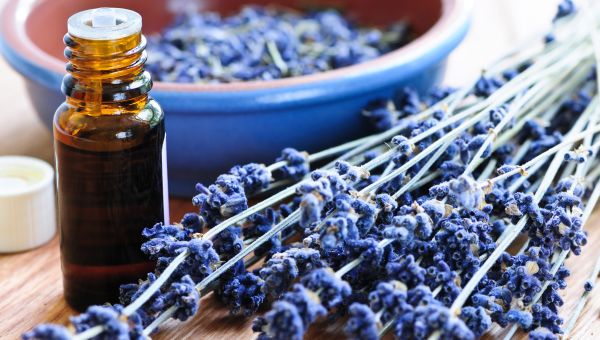
Load up on lavender
Aromatherapy may offer sleep benefits when combined with a relaxing bedtime routine, perhaps by slowing heart rate and helping to you feel calmer. In fact, a 2019 analysis of 31 studies involving about 2,400 people published in Complementary Therapies in Medicine found that aromatherapy effectively improved sleep quality when applied by clinical staff.
Lavender is a commonly recommended scent. Try adding 15 to 20 drops of lavender essential oil to a warm bath before bed, putting lavender in a diffuser in the bedroom, or spritzing some on your pillow before turning in for the night.
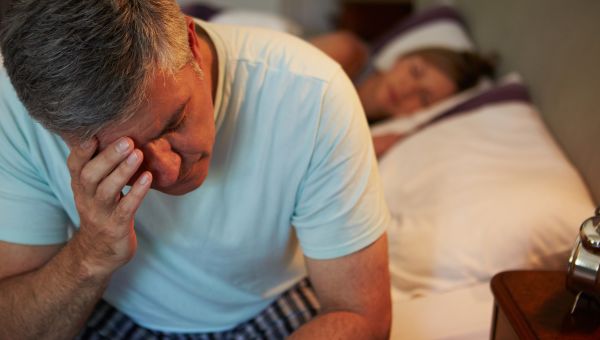
Challenge negative thinking
Beating yourself up for still being awake is not an effective way to combat sleepless nights.
Instead, remind yourself that it’s not the end of the world if you don’t fall asleep right way. Sure, you might feel a little rough in the morning, but you will get through it. Taking some of that pressure off of yourself could help you get the rest you need.

Centers for Disease Control and Prevention. About Our Program – Sleep and Sleep Disorders. Page last reviewed September 13, 2022.
NIH: National Heart, Lung, and Blood Institute. What Are Sleep Deprivation and Deficiency? Last updated March 24, 2022.
Centers for Disease Control and Prevention. The National Institute for Occupational Safety and Health (NIOSH): NIOSH Training for Nurses on Shift Work and Long Work Hours. Page last reviewed March 31, 2020.
Sleep Foundation. The Relationship Between Sex and Sleep. Page last updated June 10, 2022.
Scullin MK, Krueger ML, et al. The effects of bedtime writing on difficulty falling asleep: A polysomnographic study comparing to-do lists and completed activity lists. J Exp Psychol Gen. 2018;147(1):139-146.
Sleep Foundation. What To Do When You Can’t Sleep. Updated November 3, 2022.
Sleep Foundation. Exercise and Sleep. Updated May 6, 2022.
Johns Hopkins Medicine. Exercising for Better Sleep. Accessed December 5, 2022.
Dolezal BA, Neufeld EV, et al. Interrelationship between Sleep and Exercise: A Systematic Review. Adv Prev Med. 2017;2017:1364387.
Jerath R, Beveridge C, Barnes VA. Self-Regulation of Breathing as an Adjunctive Treatment of Insomnia. Front Psychiatry. 2019 Jan 29;9:780.
Yau KK, Loke AY. Effects of diaphragmatic deep breathing exercises on prehypertensive or hypertensive adults: A literature review. Complement Ther Clin Pract. 2021 May;43:101315.
U.S. Department of Health and Human Services. Physical Activity Guidelines for Americans. 2nd edition. 2018.
Harvard Health Publishing. Blue light has a dark side. Page last reviewed July 7, 2020.
Tähkämö L, Partonen T, Pesonen AK. Systematic review of light exposure impact on human circadian rhythm. Chronobiol Int. 2019 Feb;36(2):151-170.
Lin PC, Lee PH, et al. Effects of aromatherapy on sleep quality: A systematic review and meta-analysis. Complementary Therapies in Medicine. August 2019. Volume 45, pp 155-156.
More On


video
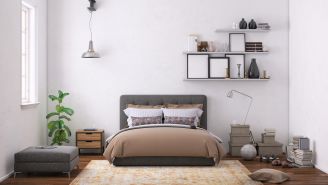
article


video


video


video
